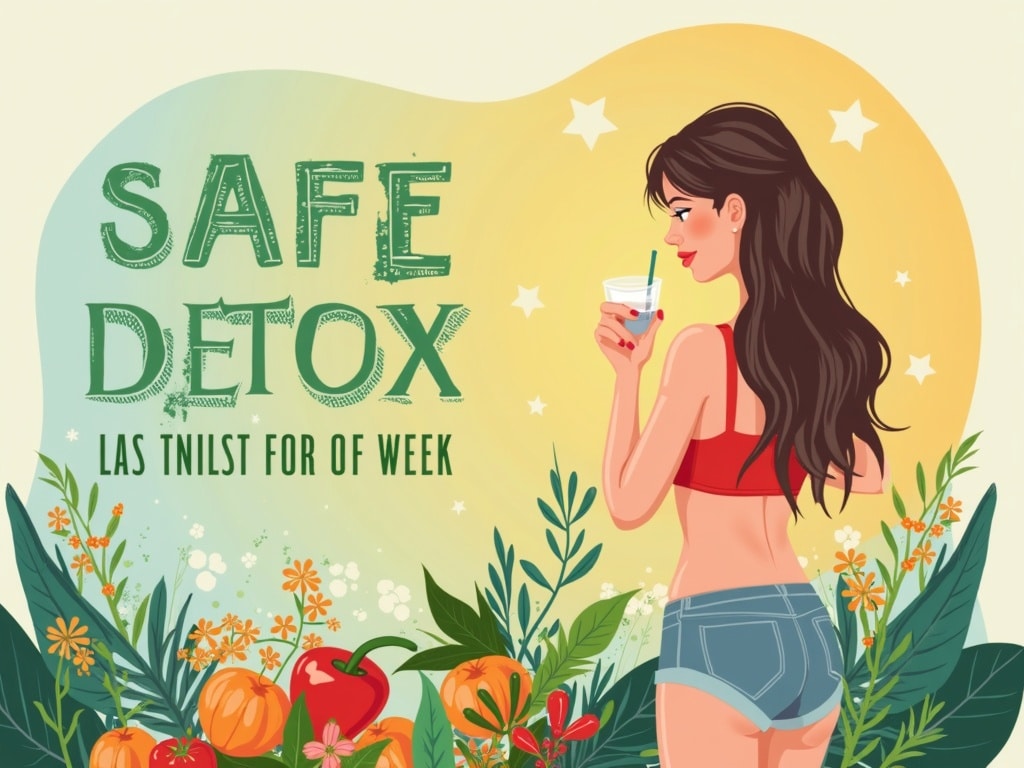Unlocking the Link Between Detoxification and Weight Loss
In the relentless quest for a healthier, leaner body, the terms detoxification and weight loss are often mentioned in the same breath. Are they genuinely intertwined, or is it merely a marketing ploy? The truth, as always, lies somewhere in between. While detoxification isn't a magic bullet for weight loss, understanding the connection between the two can empower you to make informed decisions about your health and wellness journey.
Decoding Detoxification: What It Really Means
The word detoxification gets thrown around a lot, often conjuring images of restrictive diets, strange concoctions, and miraculous transformations. But what does it actually mean, from a physiological perspective? Essentially, detoxification is the body's natural process of neutralizing and eliminating toxins. These toxins can come from both external sources (environmental pollutants, processed foods, pesticides) and internal sources (metabolic byproducts, cellular waste).
The Body's Natural Detox Systems
Your body is equipped with a sophisticated network of organs and systems that work tirelessly to keep you clean and healthy. Key players in detoxification include:
- The Liver: The primary detoxifier, transforming harmful substances into less toxic forms that can be excreted.
- The Kidneys: Filtering waste products from the blood and eliminating them through urine.
- The Digestive System: Eliminating solid waste and preventing the reabsorption of toxins.
- The Skin: Eliminating toxins through sweat.
- The Lungs: Expelling carbon dioxide and other gaseous waste products.
- The Lymphatic System: Transporting waste and toxins away from cells and tissues.
When these systems are functioning optimally, your body is well-equipped to handle the daily onslaught of toxins. However, modern lifestyles – characterized by processed foods, sedentary habits, and environmental pollution – can overwhelm these systems, leading to a buildup of toxins.
The Weight Loss Puzzle: More Than Just Calories
Weight loss, at its core, is about creating a calorie deficit – burning more calories than you consume. However, the reality is far more complex. Hormones, genetics, stress levels, and even the gut microbiome play significant roles in weight management. And, as it turns out, so does detoxification.
How Toxins Can Hinder Weight Loss
While not directly causing weight gain, a buildup of toxins can interfere with various metabolic processes that can indirectly contribute to weight gain or hinder weight loss efforts:
- Hormone Disruption: Some toxins, known as endocrine disruptors, can mimic or interfere with hormones like insulin, cortisol, and thyroid hormones. These hormonal imbalances can affect metabolism, fat storage, and appetite regulation.
- Inflammation: Chronic exposure to toxins can trigger inflammation throughout the body. Inflammation is linked to insulin resistance, which can make it harder to lose weight and increase the risk of type 2 diabetes.
- Impaired Liver Function: A sluggish liver struggles to metabolize fat efficiently. When the liver is overburdened with toxins, it may prioritize detoxification over fat burning.
- Reduced Energy Levels: Toxin buildup can lead to fatigue and decreased energy levels, making it harder to stick to an exercise routine and maintain an active lifestyle.
The Interplay: How Detoxification Supports Weight Loss
The key to understanding the link between detoxification and weight loss is recognizing that detoxification isn't about quick fixes or miracle cures. It's about supporting your body's natural processes to function optimally. When your detoxification systems are working efficiently, it can indirectly support weight loss by:
- Optimizing Hormone Balance: By reducing the burden of toxins, you can help restore hormonal balance, which is crucial for regulating metabolism and appetite.
- Reducing Inflammation: Supporting detoxification can help reduce chronic inflammation, improving insulin sensitivity and making it easier to lose weight.
- Boosting Liver Function: A healthy liver is essential for efficient fat metabolism. Supporting liver function can help your body burn fat more effectively.
- Increasing Energy Levels: When your body isn't constantly fighting off toxins, you'll likely experience increased energy levels, making it easier to be active and stick to healthy habits.

Safe and Sustainable Detoxification Strategies
Forget about extreme juice cleanses or restrictive diets. The most effective detoxification strategies are those that support your body's natural processes in a sustainable way. These include:
Dietary Changes for Detox Support
- Eat a Whole-Foods Diet: Focus on unprocessed foods like fruits, vegetables, lean protein, and whole grains. These foods provide essential nutrients and fiber that support detoxification.
- Increase Fiber Intake: Fiber helps bind to toxins in the digestive tract and eliminate them from the body. Good sources of fiber include fruits, vegetables, legumes, and whole grains.
- Stay Hydrated: Water is essential for flushing out toxins through urine and sweat. Aim for at least eight glasses of water per day.
- Limit Processed Foods, Sugar, and Alcohol: These substances can burden the liver and other detoxification organs.
- Include Detox-Boosting Foods: Certain foods, like cruciferous vegetables (broccoli, cauliflower, kale), garlic, onions, and turmeric, contain compounds that support liver function and detoxification.
- Incorporate Probiotics: Probiotics promote a healthy gut microbiome, which is crucial for detoxification and overall health.
Lifestyle Habits That Enhance Detoxification
- Regular Exercise: Exercise promotes sweating, which helps eliminate toxins through the skin. It also boosts circulation and supports lymphatic drainage.
- Adequate Sleep: Sleep is crucial for allowing your body to repair and regenerate. During sleep, your body also detoxifies and eliminates waste products.
- Stress Management: Chronic stress can impair detoxification processes. Practice stress-reducing techniques like meditation, yoga, or spending time in nature.
- Sauna Therapy: Sauna therapy can help eliminate toxins through sweat. However, it's important to stay hydrated and listen to your body.
- Minimize Exposure to Environmental Toxins: Reduce your exposure to pesticides, herbicides, and other environmental toxins by choosing organic foods and using natural cleaning products.
Debunking Detox Myths and Misconceptions
The world of detoxification is rife with myths and misconceptions. It's important to separate fact from fiction to make informed decisions about your health.
Myth 1: Detox Diets Are the Only Way to Detoxify
Reality: Your body has its own natural detoxification systems. Extreme detox diets are often unnecessary and can even be harmful. Focus on supporting your body's natural processes with a healthy diet and lifestyle.
Myth 2: You Need to Buy Expensive Supplements to Detox
Reality: While certain supplements may support detoxification, they're not essential. A healthy diet and lifestyle are the foundation of effective detoxification.
Myth 3: Detoxification Is a Quick Fix for Weight Loss
Reality: Detoxification is not a magic bullet for weight loss. It's a process that supports your body's natural functions and can indirectly contribute to weight loss when combined with a healthy diet and exercise.
Myth 4: You'll Experience Obvious Symptoms of Detoxification
Reality: While some people may experience mild symptoms like fatigue or headaches during detoxification, these are not always a sign that detoxification is working.
The Bottom Line: A Holistic Approach to Health and Weight Management
The link between detoxification and weight loss is complex and multifaceted. While detoxification isn't a direct weight loss solution, supporting your body's natural detoxification processes can optimize your overall health and indirectly contribute to weight management by improving hormone balance, reducing inflammation, and boosting liver function.
Instead of relying on quick-fix detox diets, focus on adopting a holistic approach to health that includes a whole-foods diet, regular exercise, adequate sleep, stress management, and minimizing exposure to environmental toxins. This sustainable approach will not only support detoxification but also promote long-term health and well-being.
Remember to consult with a healthcare professional before making any significant changes to your diet or lifestyle, especially if you have any underlying health conditions.

